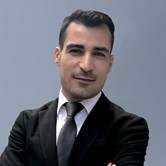Syria


SDF commander Mazloum Abdi speaking in a video on October 26, 2024. Photo: SDF Press/screengrab
ERBIL, Kurdistan Region - Mazloum Abdi, general commander of the Kurdish-led Syrian Democratic Forces (SDF), denied any connection to Wednesday’s attack on a Turkish aerospace facility in Ankara.
“Our forces have nothing to do with these attacks and the attackers did not pass through Syrian territory,” Abdi said in a video message on Saturday.
The Turkish Aerospace Industries Inc. (TAI) facility in Ankara’s northern Kahramankazan district was attacked by two assailants on Wednesday. Five people were killed and 22 injured.
The Kurdistan Workers’ Party (PKK) claimed responsibility, saying the assault “was carried out by an independent team of the Immortal Battalion.”
Turkish President Recep Tayyip Erdogan claimed that the attackers came from Syria. "We have learned that this terrorist attack developed as an infiltration movement from Syria,” he told journalists on Friday while returning from the BRICS Summit in Russia.
Abdi said his forces do not cross the border, that the SDF decided “not to carry out operations on Turkish territory and northern Kurdistan [southeast Turkey]. Our military operations are limited to Syrian territories only.”
On Wednesday night, Turkey began a wave of strikes against alleged PKK targets in the Kurdistan Region and Syria. Turkey considers the SDF an affiliate of the PKK.
The strikes in Syria continued for at least two days.
“Last night, Turkish fighter jets targeted the vicinity of Qamishli power station, as well as attacking a construction materials facility twice via a drone,” read a statement from local Kurdish security forces (Asayish) on Saturday.
Abdi said the strikes have killed 17 individuals across northeast Syria (Rojava) and that “only two of them were soldiers.”
He said that the SDF favors dialogue to resolve its problems with Turkey, but that they may be compelled to escalate in response.
“These attacks and their continuation harm our efforts for dialogue and put them at risk. If the attacks continue in this insistent manner, we will be obliged to strengthen our responses more than before,” he said.
The surge in violence comes amid hopes for a renewed drive for peace between the Turkish state and the PKK that began earlier this month with Nationalist Movement Party (MHP) leader Devlet Bahceli proposing that jailed PKK leader Abdullah Ocalan address the Turkish parliament and declare the dissolution of his armed group.
In a further step, the government permitted Ocalan to meet his family, ending more than four years of isolation. After the meeting, Ocalan's nephew and Pro-Kurdish Peoples’ Equality and Democracy Party (DEM Party) lawmaker Omer Ocalan shared a message from his uncle that he can transition the violence into a political process.
On Friday, Erdogan said Turkey would continue to fight terrorism.
“Our forces have nothing to do with these attacks and the attackers did not pass through Syrian territory,” Abdi said in a video message on Saturday.
The Turkish Aerospace Industries Inc. (TAI) facility in Ankara’s northern Kahramankazan district was attacked by two assailants on Wednesday. Five people were killed and 22 injured.
The Kurdistan Workers’ Party (PKK) claimed responsibility, saying the assault “was carried out by an independent team of the Immortal Battalion.”
Turkish President Recep Tayyip Erdogan claimed that the attackers came from Syria. "We have learned that this terrorist attack developed as an infiltration movement from Syria,” he told journalists on Friday while returning from the BRICS Summit in Russia.
Abdi said his forces do not cross the border, that the SDF decided “not to carry out operations on Turkish territory and northern Kurdistan [southeast Turkey]. Our military operations are limited to Syrian territories only.”
On Wednesday night, Turkey began a wave of strikes against alleged PKK targets in the Kurdistan Region and Syria. Turkey considers the SDF an affiliate of the PKK.
The strikes in Syria continued for at least two days.
“Last night, Turkish fighter jets targeted the vicinity of Qamishli power station, as well as attacking a construction materials facility twice via a drone,” read a statement from local Kurdish security forces (Asayish) on Saturday.
Abdi said the strikes have killed 17 individuals across northeast Syria (Rojava) and that “only two of them were soldiers.”
He said that the SDF favors dialogue to resolve its problems with Turkey, but that they may be compelled to escalate in response.
“These attacks and their continuation harm our efforts for dialogue and put them at risk. If the attacks continue in this insistent manner, we will be obliged to strengthen our responses more than before,” he said.
The surge in violence comes amid hopes for a renewed drive for peace between the Turkish state and the PKK that began earlier this month with Nationalist Movement Party (MHP) leader Devlet Bahceli proposing that jailed PKK leader Abdullah Ocalan address the Turkish parliament and declare the dissolution of his armed group.
In a further step, the government permitted Ocalan to meet his family, ending more than four years of isolation. After the meeting, Ocalan's nephew and Pro-Kurdish Peoples’ Equality and Democracy Party (DEM Party) lawmaker Omer Ocalan shared a message from his uncle that he can transition the violence into a political process.
On Friday, Erdogan said Turkey would continue to fight terrorism.








Comments
Rudaw moderates all comments submitted on our website. We welcome comments which are relevant to the article and encourage further discussion about the issues that matter to you. We also welcome constructive criticism about Rudaw.
To be approved for publication, however, your comments must meet our community guidelines.
We will not tolerate the following: profanity, threats, personal attacks, vulgarity, abuse (such as sexism, racism, homophobia or xenophobia), or commercial or personal promotion.
Comments that do not meet our guidelines will be rejected. Comments are not edited – they are either approved or rejected.
Post a comment